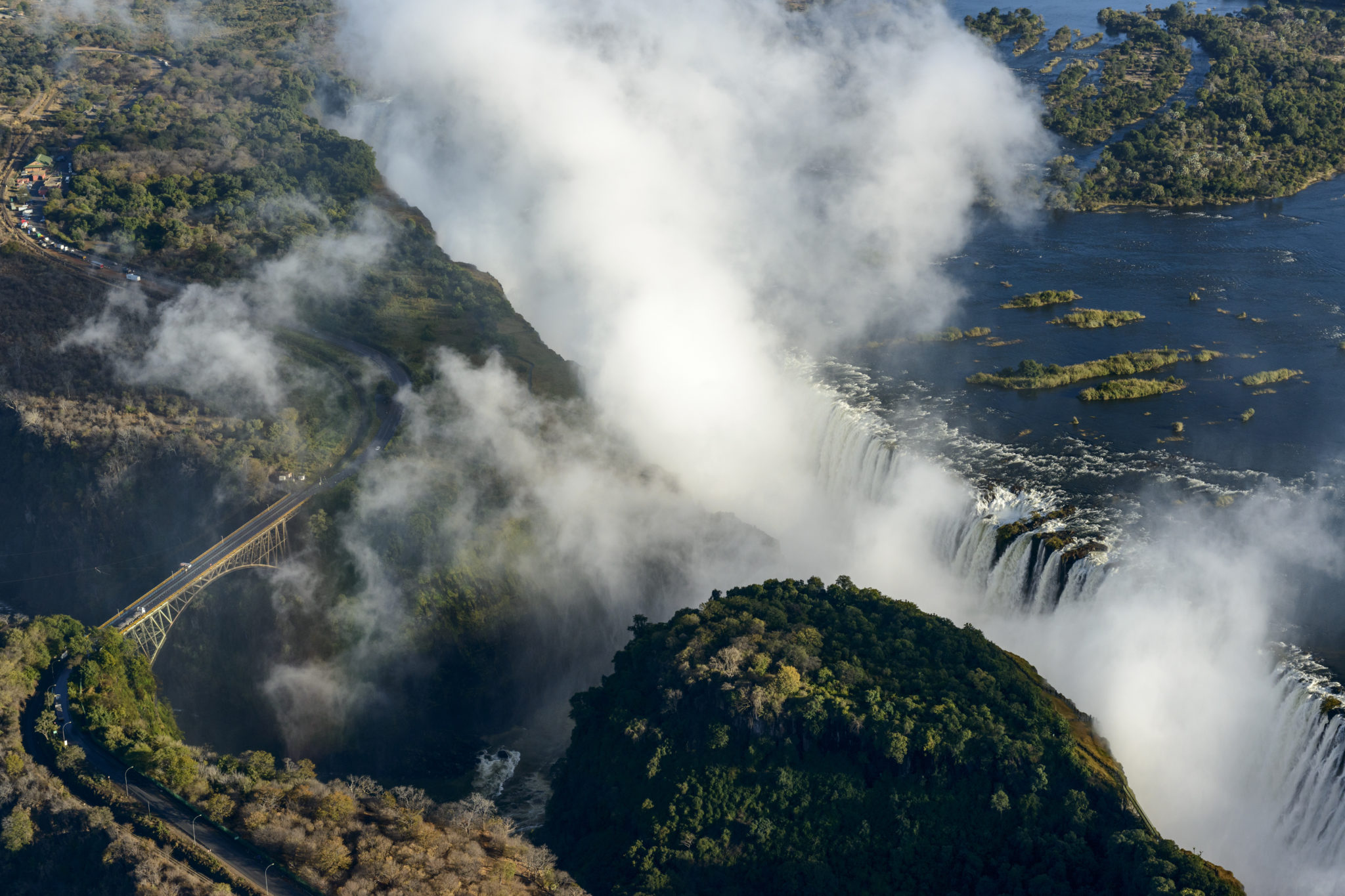Source: Zimbabwe: Two Realities In One Country – Forbes Africa
It is eight days before Christmas. We take the 1,300-kilometer drive from Johannesburg to Victoria Falls for a short vacation. As we arrive in Beitbridge, the border connecting South Africa and Zimbabwe, the sun is shining its warm golden light over the bridge. There are no birds chirping over the Limpopo River. It seems like a peaceful morning, until you get closer.
There is pandemonium as hundreds of cars line up to be stripped and searched before proceeding into Zimbabwe. Most here are Zimbabwean nationals working in South Africa traveling home for the holidays.
They are bringing with them many supplies like cooking oil, fuel, stationery, furniture, clothing, drinks, building material and even Christmas trees. These items are scarce and overpriced in Zimbabwe.
Some want to sell them to hurried customers and others want to use them at home. The problem is, most of them require as much as 40% duty and others can’t be imported.
“Is your friend here today? I would like him to help me cross with my goods,” I overhear a man in the autumn of his life say over the phone.
He isn’t the only one trying to smuggle goods into Zimbabwe. According to local reports, the Zimbabwe Revenue Authority (ZIMRA) loses over $1 billion due to smuggling each year. With hundreds trying to make their way across, a journey to Victoria Falls is delayed by at least five hours.
As we drive into Beitbridge, we can see and almost smell struggle. This place is seized by an oppressive gloom. Our first stop is an Engine Garage that now operates almost like a tuckshop. Here, fuel tanks are dry and the shop inside has only bread, water, cold drinks, biscuits and chips.
Outside, it is filled by a crowd of people pushing, shoving, shouting, buying and selling. There is dirty water flowing down the street and litter fills the potholes. Yet, this grubby place is seeing more trade than Zimbabwe’s biggest banks. Here, the black market is king and the bond notes are pawns.
In 2016, the government introduced bond notes in hopes to ease the cash crisis that saw the US dollar become scarce. The Reserve Bank may say bond notes are 1:1 to the US dollar; the free market says no. The black market traders are selling 1 US dollar for three bond notes.
“I used to be an accountant with a good job but our company closed down and now I am jobless. I have to make a living somehow so I rather sell cash on the streets to put food on the table,” says Bongani Moyo.
As we drive further into Zimbabwe, the situation gets worse. Stores are packed with imported goods; roads and buildings are dilapidated. One of the biggest problems is fuel.
“I just came out of a two-day fuel queue. The situation is bad. People can’t go to work and sometimes people hire [other] people to spend the day queueing for them,” says Given Mwale, as he directs us to a garage that sells fuel in foreign currency so we can continue our journey to Victoria Falls.
“That is the only garage that doesn’t get many queues and doesn’t run out of fuel. It is a private garage. They import their fuel from Botswana and they only sell in forex,” he says.
Shocked by the scarcity of cash, we drive towards Victoria Falls. On the way, many businesses are boarded up, their paint peeling and doors closed. As we arrive in Victoria Falls, there are jaw-dropping scenes.
The place looks nothing like the rest of Zimbabwe. Fueled by the tourist economy, the streets are clean and the business district buzzing. People are relaxed in summer clothing and look like they have no worry. It is a true holiday destination.
At Victoria Falls, the Zambezi River plummets over a cliff and into the boiling pot before flowing through a series of gorges. It has a width of 1,708 meters and a height of 108 meters, making it the world’s largest sheet of falling water.
As nature lovers, we experience the falls while walking through a rainforest and playing with monkeys. We also get to watch the sunset while drinking champagne in an open boat.
For a few hours, we forgot the troubles that belie Zimbabwe; until we drove out of Victoria Falls, back to Bulawayo. There may be laughter and foreign currency near the smoke that thunders but the rest of the country continues to cry for an economic breakthrough.
No related posts.

COMMENTS